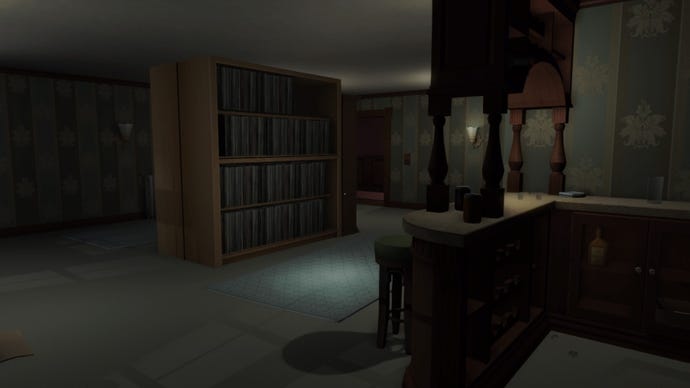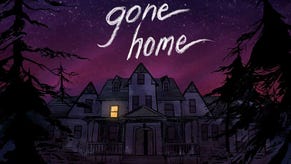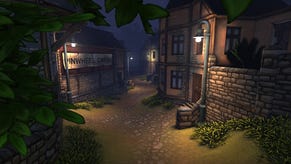Gone Home: Console Edition PS4 Review: Get to Know People You Never Get to Meet
The Fullbright Company's critically acclaimed 2013 PC game finally arrives on console. Does it still hold up?
This article first appeared on USgamer, a partner publication of VG247. Some content, such as this article, has been migrated to VG247 for posterity after USgamer's closure - but it has not been edited or further vetted by the VG247 team.
More interactive fiction than traditional game, Gone Home starts out with you facing a locked front door. It's 1995, and you're Katie Greenbriar, freshly returned from an extended, year-long vacation in Europe to find her new family home devoid of inhabitants. Where are her parents and younger sister? Figuring that out by searching the house for clues is the objective of this somewhat experimental piece of software, which, for the benefit of this review, I'll still refer to as a game.
Initially trapped inside the house's front porch, a quick bit of detective work soon has you opening the front door and entering its dim foyer. What quickly becomes apparent is that the family haven't occupied the house for long. At least, it seems like it. Moving boxes are still present, and the place is in some disarray.
At first, the proceedings feel a little spooky. The game is set in the middle of the night, and there's a fierce storm raging outside. It has all the hallmarks of a horror setting, which I initially found somewhat unnerving, until it became obvious that Gone Home simply isn't that kind of game. Instead, it's all about first-person perspective exploration, where you poke around the creaking and somewhat creepy Victorian domicile, examining objects, books, scraps of paper, and notes to ascertain what's been happening to the family during the year you were absent.
It turns out that the house is quite large, with a basement and two floors to walk around. Most of the environment is open, and you're left to your own devices in regards to where to start searching, and what to do. I ran a fairly methodical route through the game, going through rooms one by one in a specific order, looking for clues and slowly piecing together what life is like for the family.
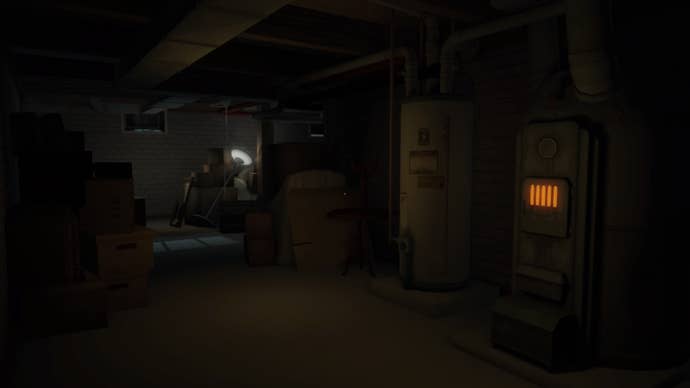
Every so often, you'll find an object that triggers a piece of audio narrative from Sam, Katie's sister. These almost feel like journal entries, and as you progress through the game, they meld into a back-story that gives you insight into Sam's life and feelings. In some sense, they're the mundane, everyday happenings of a teenager, but at the same time there's something bittersweet about her perspective. As you slowly piece together the recent family history, you realize that she's troubled in some respects, and dealing with issues at school, and in her personal life.
What's quite extraordinary is the way that household objects and discarded notes give such rich insight into the Greenbriar family routine. There are video tapes on shelves that let you know what kinds of movies and TV shows they watch. In Sam's room, posters and flyers relay the music she enjoys listening to, and what she does in her spare time. Piecing together everyday family life doesn't sound particularly exciting, but it's strangely compelling - and nostalgic too, if you grew up through the 90's.
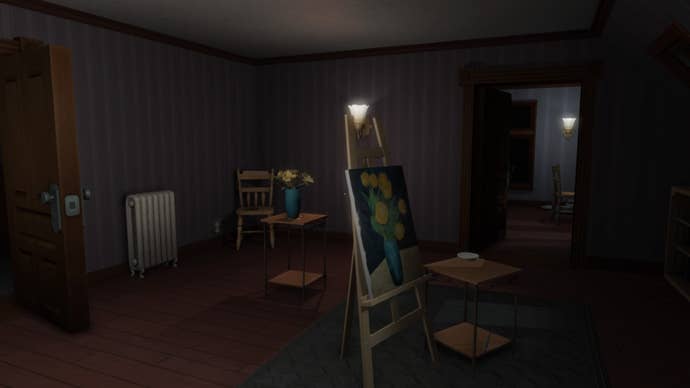
That's definitely a testament to the game's excellent writing and attention to detail. Many of the clues take the form of hand-written notes and letters, which feel absolutely authentic. Not only do they read in a very realistic way, their formatting is often very well-observed, with little doodles in the margins, or specific fonts used to convey their origin. They all help to build up the overall narrative, and fill in knowledge gaps about the family's history – who they are, what they do, and even deliver insight into their hopes and dreams, foibles and challenges.
By the end of the game, you feel you know quite a lot about this group of individuals and their lives – and it almost feels like you've gotten to know real people. It's an odd effect, and one that stuck with me for days as I continued to digest the game's nuggets of information. Indeed, I even came up with additional insight and ideas about the family after the fact. Few other games have really done that for me – apart from perhaps Everybody's Gone to the Rapture.
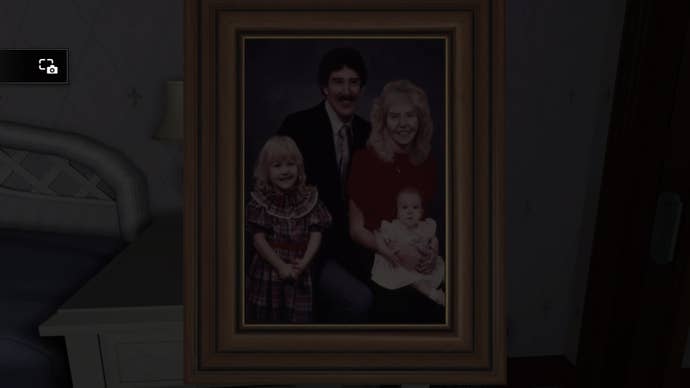
Gone Home slowly builds to a quite satisfying conclusion. There's certainly no great revelation – and the finale is ostensibly quite hum-drum – but it really works well within in the confines of the game. This is essentially a family drama played out by proxy – and one that is intelligently articulated and crafted. To me, that's what makes the game so interesting. You don't need to see two people arguing, when a angrily-written note from father to daughter can give you almost complete insight into their points of friction. A simple report card might clue you in on a student's performance at school – but read between the lines, and you also see the struggles she might be going through internally, and how that might affect her relationships at home. This is the way that many of the game's simple clues transcend their mundane nature and speak volumes about the family – and there are many of them to discover in this game.
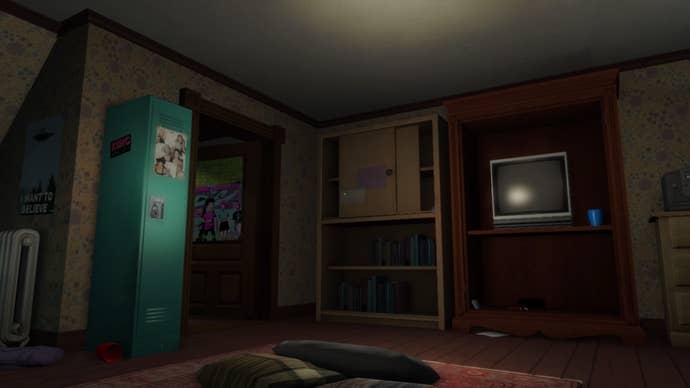
The result is a game that's in some sense a bit of a dichotomy. On the one hand, Gone Home is actually quite dull to play in a mechanical sense: You're simply exploring an old house searching for items that might yield useful pieces of information. Yet at the same time there's a rich story being played out piece by piece in a non-linear fashion, whose parts combine to deliver something greater than its whole.
One thing's for sure – Gone Home isn't for everybody. They key to whether or not it'll work for you is down to your own curiosity in regards to exploring an environment, and whether collating the facets of an interactive family drama sounds interesting to you. It only takes a few hours to play through Gone Home, give or take, and there's not much in the way of replay value once you're done – unless you're looking for additional details you might have missed to round out the story. But despite its short running time, it's like a good movie or a story that sticks with you and makes you think about it in the days after you've experienced it. Few games can really claim that, and that's why I think Gone Home is something to be savored.
InterfaceVery simple, but effective.
Lasting AppealThe game takes a few hours to play through, and offers little replay value after it's done. But it makes a big impression during its brief running time.
SoundThe sparingly-used music is excellent, and the general effects are solid.
VisualsThe environment is very nicely rendered, with meticulous attention to detail.
ConclusionVideo gaming meets 90's family drama in a finely-crafted piece of interactive fiction whose atmospheric story is intelligently articulated in a very compelling way. While Gone Home's experience is rather short, its characters will stay with you for days after you've finished the game - despite you never meeting them.
